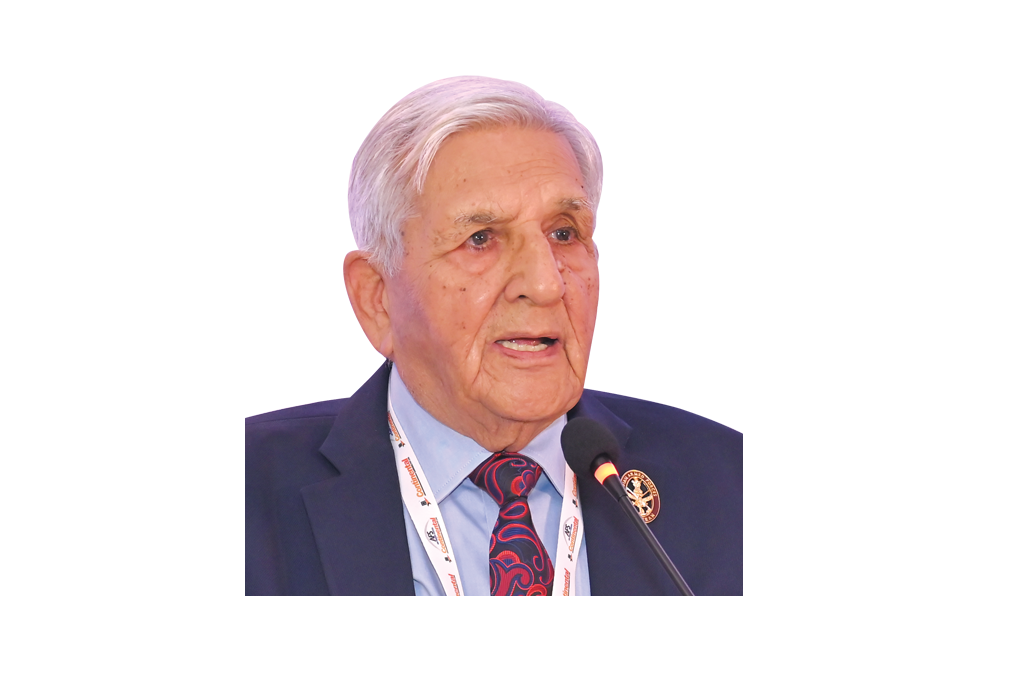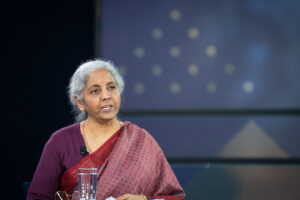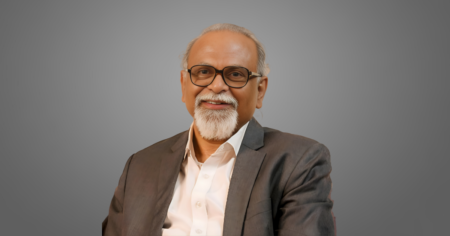A 39-year career in the Indian Army shaped Lt Gen (Retd) Kalra ‘s expertise in logistics. From military operations to education and global consulting, his contributions have transformed supply chain management practices, blending military precision with modern industry strategies.

The remarkable journey of Lt Gen (Retd) Kalra began in December 1954 when he was commissioned into the Army Ordnance Corps, one of the oldest and most critical logistics services of the Indian Army. Tasked with managing a vast array of supplies for the Army—from essential items like clothing and boots to complex weaponry and telecommunication systems—this branch is integral to the operational readiness of the force. Over the course of his 39-year career, he rose through the ranks, becoming the Director General of Ordnance Services, a role in which he oversaw the Army’s vast logistical network and inventory.
A pivotal moment in his career came when he qualified as an Ammunition Technical Officer, where his excellence led him to secure the top position in his course. His exceptional performance earned him a position as an instructor in the same discipline, where he shared his knowledge with others. His academic achievements extended beyond India when he was selected for a prestigious course in advanced ammunition studies at the Royal Military College of Science in the UK. As the only Indian officer among 21 British, Canadian, and Australian counterparts, he not only excelled but topped the course, an achievement that earned him special recognition from the Chief of Army Staff.
In logistics, the rigorous demands of military conditions provide valuable insights for civilian supply chains
Leading army operations
Lt Gen Kalra’s career reached a pivotal moment when he served as a Major General, overseeing the operational logistics of an entire command. In this capacity, he coordinated with various logistical services to ensure timely supply delivery to both fighting and support units in challenging operational zones. His adept management of these logistics earned him significant recognition, leading to his promotion to Lieutenant General and subsequent appointment as Director General of Ordnance Services for the Indian Army. In this esteemed role, he managed an extensive inventory of over 500,000 items valued at ₹50,000 crores. He championed vital innovations, shifting from legacy commodity-based holdings to a modern system-based approach. His leadership led to the creation of the Central Inventory Control Protocol (CICP) in January 1993, which significantly improved inventory visibility and control across the board.
Educational legacy
After retiring from the military, Lt. Gen. Kalra remained actively involved in logistics and supply chain management. He transitioned into education, teaching at prestigious Indian management institutes such as IIFT Delhi, IIM Rohtak, and the FORE School of Management. His emphasis on international logistics and supply chain management played a pivotal role in developing future industry leaders. Additionally, he co-authored the widely respected textbook Supply Chain Management: Strategy, Planning, and Operation with two American authors. Published by Pearson Education: this resource is widely used in management schools across India and South Asia, incorporating Indian case studies to localise global theories.
Logistics synergy
Lt. Gen. Kalra’s extensive knowledge of military and civilian logistics enables him to identify crucial parallels between the two fields. He cites Peter Drucker’s idea that armies act as “Schools of Nations,” highlighting how corporate management practices stem from military operations. In logistics, the rigorous demands of military conditions provide valuable insights for civilian supply chains. He advocates for mutual learning between sectors, emphasising that military logistics’ adaptability and precision can serve as a model for industries like cargo, retail, and manufacturing. He notes that ongoing global conflicts, like the Russia-Ukraine war, challenge logistics systems, prompting innovative solutions with broader applications.
Take the study of logistics and supply chain management seriously, as these fields are set to become the key to success in the future
Global impact
Lt. Gen. Kalra’s logistics expertise extended beyond India. Early in his career, he commanded an Ordnance unit with the Indian Independent Brigade on a UN Peacekeeping Mission in Congo, collaborating with multinational forces from countries like Ireland and Sweden, which enriched his understanding of global logistics. In 1976, he was sent to Nigeria to lead a team focused on modernising the Nigerian Army Ordnance Corps. Despite political instability from recent coups, his team successfully established a Training school at Ojo, a vehicle depot on Badagry Road, and an Ordnance depot at Ikeja, enhancing logistics operations and fostering ties between India and Nigeria.
Tech advocacy
Lt. Gen. Kalra champions the adoption of new technologies in logistics, viewing digitalisation, automation, and sustainability as key drivers. He highlights real-time inventory visibility through IT tools as a game changer, enhancing precision and speed. As Indian logistics evolves, he believes embracing advanced technologies will be crucial for businesses to stay competitive, fostering efficiency and innovation across industries.
Advice for emerging leaders
For young professionals and emerging leaders in the logistics and supply chain industry, Lt Gen Kalra has clear advice: “Take the study of logistics and supply chain management seriously, as these fields are set to become the key to success in the future.” He stresses the importance of continuous learning and adaptability in the rapidly evolving logistics industry. As global supply chains grow more complex, effective management will become a crucial skill.
In conclusion, Lt Gen (Retd) Kalra’s illustrious career in the Indian Army, combined with his impactful post-retirement roles in education and consulting, has left an indelible mark on logistics and supply chain management. His blend of military discipline and forward-thinking strategies continues to inspire and guide both industries as they navigate the challenges of the modern world.











